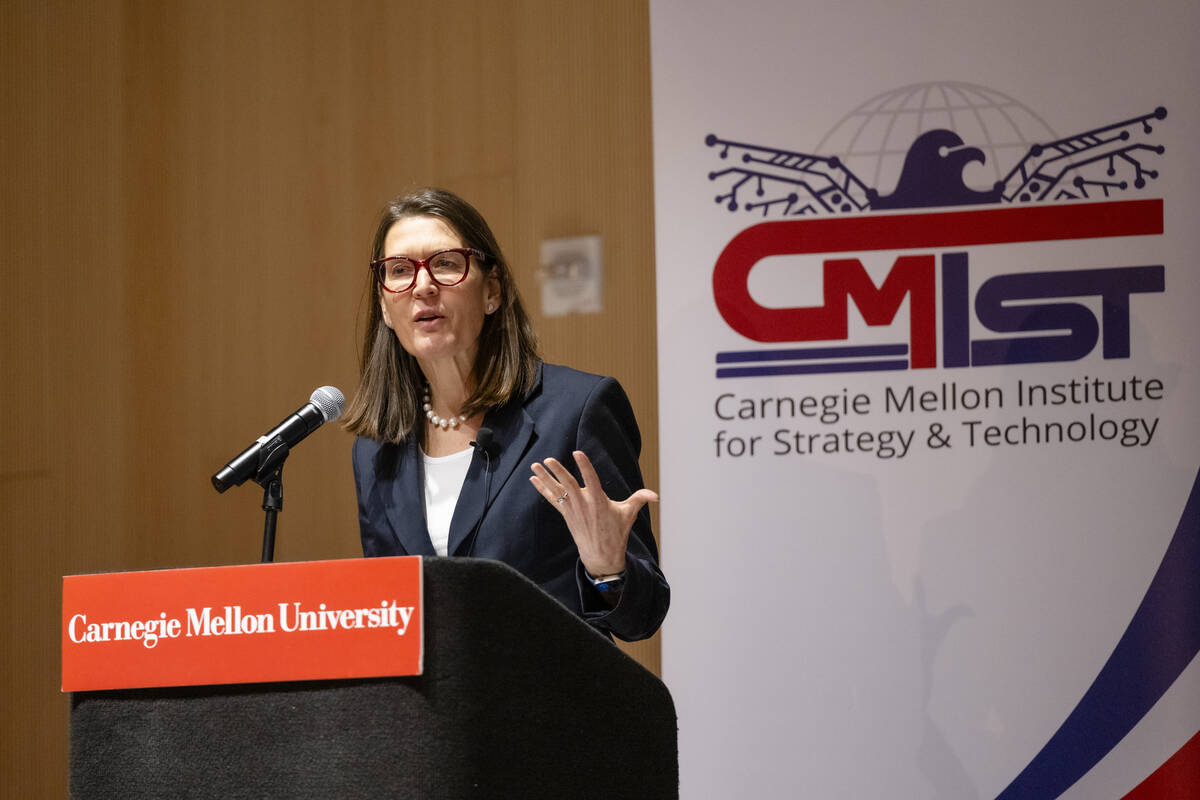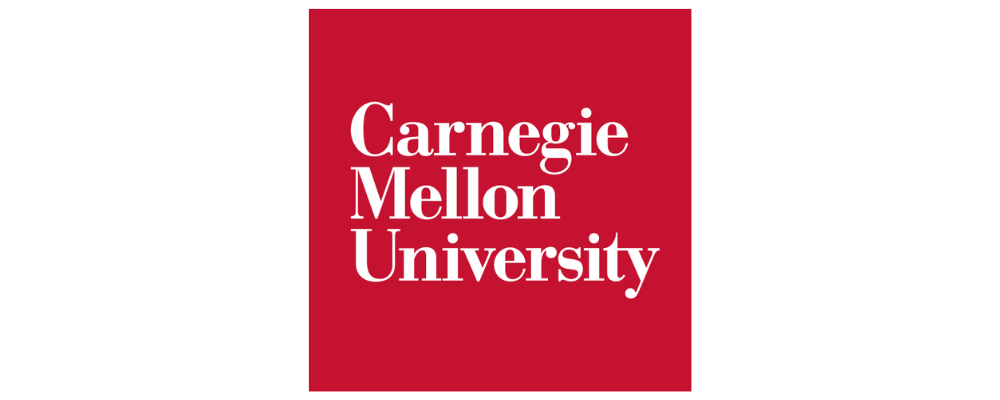A tape measure may seem an unlikely tool to identify unconscious bias within an organization, yet in the hands of biologist Nancy Hopkins, it quantified gender bias and became a powerful symbol of the fight for gender equality.
At Carnegie Mellon University, during the most recent Scientists & Strategists lecture hosted by the Carnegie Mellon Institute for Strategy and Technology(opens in new window) (CMIST) on Tuesday, April 23, guest speaker Kate Zernike recounted the story of Hopkins’ quest to unveil gender bias while working at the Massachusetts Institute of Technology’s Center for Cancer Research, later renamed the Koch Institute for Integrative Cancer Research.
A renowned journalist for the New York Times since 2002, Zernike connected with Hopkins in the spring of 1999 while working as a reporter for the Boston Globe, eventually breaking the news of MIT’s historic admission of discrimination against women. In 2023, Zernike published a book based on the full story of Hopkins’ journey titled “The Exceptions: Nancy Hopkins and the Fight for Women in Science.”
The Scientists & Strategists event began with a welcome by CMIST Director Audrey Kurth Cronin(opens in new window), CMU’s Trustees Professor of Security and Technology, who expressed great pride in the prominent roles of women at CMU in the fields of science, engineering and humanities before turning the stage over to Provost James H Garrett Jr(opens in new window).
Garrett acknowledged progress since the days of the Margaret Morrison Carnegie School for Women, but stressed that fostering belonging, equity and inclusion remains a top priority at CMU as “there is always work to be done.” Before introducing Zernike, Garrett highlighted the importance of the evening’s discussion, noting that with the right environment, diversity gives rise to better work and solutions.

The daughter and granddaughter of physicists, Zernike was surrounded by science as a child. She was also inspired by the story of how her mother, who was initially discouraged from pursuing law, earned her Juris Doctor at the age of 45. So in March 1999, when Zernike received a “vague tip” that something was going on with women in science at MIT, along with a suggestion to contact Nancy Hopkins, she knew she needed to find out more.
What started as a curious phone call sparked a nationwide conversation about gender bias as well as a longstanding friendship between Hopkins and Zernike.
During her talk, Zernike guided the audience through the at times infuriating, at times entertaining story of how this brilliant molecular geneticist and cancer researcher uncovered pervasive inequities at MIT by utilizing a highly developed skill: collecting and analyzing data.
The catalyst of this groundbreaking discovery was a simple request by Hopkins in the early 1990s for 200 square feet of additional laboratory space. Hopkins, who by then was a tenured faculty member with over a decade of experience at MIT’s Center for Cancer Research, needed the additional space to house the fish tanks for her research into gene expression in zebrafish. After her request was denied, she decided to compare the size of the laboratory spaces afforded to male faculty members at MIT, including those junior to her.
As Zernike explained, Hopkins “did not set out to be an activist ” nor a feminist. A strong believer in meritocracy, Hopkins had gone out of her way to prove that what was happening to her was not discrimination, thinking that any disparities in treatment must be attributed to deficiencies in the quality of her work. However, the data she collected told a different story.
“Carnegie Mellon University is a private research university in Pittsburgh, Pennsylvania. The institution was originally established in 1900 by Andrew Carnegie as the Carnegie Technical School. In 1912, it became the Carnegie Institute of Technology and began granting four-year degrees.”
Please visit the firm link to site


